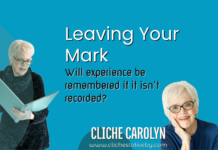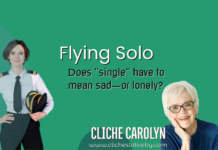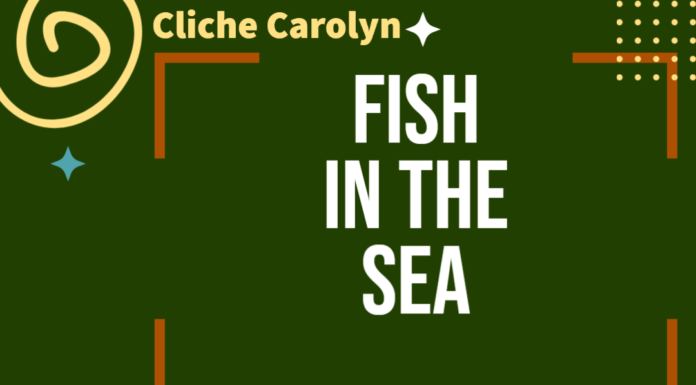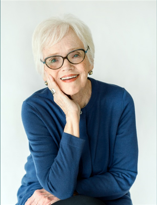Dr. Carolyn Lee reflects on a different cliché each week. Recently, in her blog, “What You See is What You Get,” she discusses the idea of seeing and the art form that it can be. This week Carolyn explores the cliché, to die for.
Learn more about Dr. Carolyn Lee on her biography page or investigate 29 more clichés in her latest book, Keep Your Eye on the Ball And Other Clichès to Live by.
To Die For
I recently saw a documentary entitled Fire of Love about Maurice and Katia Krafft, an Alsatian French married couple who devoted their entire lives to studying, filming, and recording volcanoes. In 1991 they and forty-one other people, mostly scientists, journalists, and photographers, were killed by a pyroclastic flow that erupted from Mount Unzen in Japan.
Much of the film used in the documentary was footage Maurice had shot of volcanic eruptions they had witnessed all over the world. The images are beautiful and breath-taking—explosions of rock and fire, boiling lava surging down mountainsides, gigantic clouds of black smoke that look like the aftermath of an atomic bomb. And there they are, right in the middle of it all. The Kraffts were renowned for getting closer, going deeper, and looking harder at volcanic phenomenon than any other scientists or volcanologists involved in that field of study. They were fearless. Maurice once said, “I am never afraid because I have seen so many eruptions in 23 years that even if I died tomorrow, I don’t care.” They both knew, of course, that their dangerous vocation would probably kill them. The constant possibility of death was something they willingly accepted in order to pursue their passions and live life to the fullest. Maurice once described how he hoped he would die: “I want it to be at the edge of a volcano.”
I can’t say that, after seeing this documentary, I wanted to book the next flight to the volcano most likely to erupt into a cataclysmic tower of fire and ash. But seeing the Kraftts in action did make me think about what is important to me and wonder if there’s any pursuit for which I would be willing to risk my life or any one thing without which I just couldn’t go on. The single most memorable quotation I came across while doing some follow-up reading about these two adventurers was Katia’s: “I couldn’t live without volcanoes.” Yes, that’s what she said. “I couldn’t live without volcanoes.” Her love of volcanoes was so great that she couldn’t imagine her life without them. She believed that her life wouldn’t be worth living without them.
I’m always fascinated when I come across a story about a person engaged in some extreme endeavor, something that requires passion that borders on obsession. Alex Honnold is one of those people. In 2017 he became the first person to free solo El Capitan in Yosemite National Park, an accomplishment that has been described as “one of the great athletic feats of any kind, ever.” Free soloing is a form of ice or rock climbing done alone without ropes, harnesses, or any kind of protective equipment. It is the most dangerous form of climbing, where a fall is very likely to be fatal.
Alex told an interviewer once that he wound up a climber because he didn’t want to be anything else. A climber is what he had to be. He didn’t want to end up in another profession by default. He wanted to do the one thing he was passionate about: climbing. I read about this man with my mouth open, wondering if I had ever been that passionate about anything. I reviewed my rather patchwork resumé. On it were things that had been fun and rewarding and, I hope, worthwhile and maybe even useful. But was there anything I was over-the-top passionate about? Anything I couldn’t live without? Anything that went beyond dedication into fanaticism?
Friends of 71-year-old Marge Hickman say she is “masochistically obsessed” with the Leadville Trail 100-Mile Race. She has finished the race fourteen times, more than any other female runner in Leadville’s history, and her record of achievements includes an array of marathon races with impressive finish times. Marge has said, “Without that race on my calendar, I don’t know what I’d do or who I’d be.” When she signed up for the 2022 race, she tried to explain her obsession: “Yeah, I like to read books and stuff, but I’m a doer. Leadville’s been half my life. It’s in your face—the hand of the mountains just comes out and gets you by the heart and sucks you in.”
In some ways, I’m envious of these people. They are living lives that are supremely focused, lives that are really about something. They are trying to be the best, the most, the greatest. On the other hand, I feel a certain sympathy for them. They have to give up so much in order to satisfy their obsessions. In their single-minded quest for perfection, they miss out on so many things. When I read a story about a young girl who wants more than anything to be an Olympic skater, or a ballerina or a world-class gymnast, who practices seven hours every day in order to reach her goal, I wonder if she regrets having to eliminate a lot of standard, teenage-girl experiences from her life. When I see what it takes for that young girl to reach the pinnacle of her chosen profession, I hope it’s worth it because the sacrifices are enormous.
I have to admit that I have never reached a pinnacle. I’m not a world-class professional. I love the theater, but I would not risk my life to pursue it. I love to cook, but I’d still be me if I never baked another scone. I enjoy writing, but I’m no Tennessee Williams. He once said, “When I stop working the rest of the day is posthumous. I’m only really alive when I’m writing.”
I’m glad there are people in the world who show us what the very best looks like. I’m an admirer of champions, but, alas, I will never be inducted into anyone’s Hall of Fame.
Want to Read More?
Check out Dr. Carolyn Lee’s blogs on her website, she features a new cliché each week or you can order her new book, Keep Your Eye on the Ball And Other Clichès to Live By. Curious about the author? Read more about Carolyn here. We hope you enjoyed this article learning more about the cliché, to die for.













LUVVIT! But I’m in your court. Great blogs!